
May 31, 2018
Read time: 4min

May 31, 2018
Read time: 4min
In our ‘Disruptors’ webinar series, we look at industries undergoing major changes, inviting experts to explain key trends and what insights and intelligence professionals can do to tackle them. Here we concentrate on the travel industry.
The webinar ‘Tackle travel industry disruption with faster speed to insight’ brought together expert panelists Caroline Bremner, Head of Travel & Tourism at Euromonitor, John Flesta, Vice President at Ipsos, and Martin Rückert, Market Logic’s cognitive guru.
The speakers identified major trends shaking up the global travel sector. Caroline kicked off the session by reminding the audience that the travel industry has been in disruption for the past twenty years and that yesterday’s disruptors – Expedia, Booking.com, TripAdvisor – are now the disrupted.
“The latest Euromonitor research tells us that disruption is the new normal. Tech giants such as Google and Amazon hold huge power over travelers and consumers, and the more they invest in the travel and tourism industry, the more disruption we’ll see.
In addition to this, more P2P interactions will lead to new customer experiences and business models that will consider the increasingly higher expectations of today’s consumer.” She posed one fundamental question: where will disruption come from next?
There are 8 billion smartphones in the world right now, of which half are connected to the internet. By 2030 all mobile phones are expected to be internet-enabled. This is empowering growing players like Airbnb and the Chinese Ctrip to really challenge Expedia and Booking’s dominance in the market.
For end-users, this means that messaging apps can offer a truly seamless booking journey. Once again China leads the way – explained Caroline – for example with the multi-purpose messaging, social media, and mobile payment app WeChat, which has become an all-in-one travel companion on the go.
Disruption is also happening at a destination level. Dubai is a great example of a region that is investing heavily in innovative, cutting-edge technology to build smart, highly connected cities.
By 2030, 25% of all transportation in Dubai is expected to be driverless. And through blockchain and biometrics, they aim to provide a seamless, enjoyable customer journey across the whole airport experience.
Caroline then referred to a recent survey by Euromonitor where over 15k consumers worldwide were interviewed.
Customers want their experiences to be simpler and seamless, but are also keen to try new products, want choices and flexibility, access to curated, premium, personalized services. In all this, the desire to spend more on experiences rather than goods is evident.
By 2022, smart wearables are set to reach 65 million units. Apple Watch is currently the world’s leading wearable, with a 34% share in 2017. Not all launches are successful though. Google Glass for example never took off, but other projects such as Intel’s Vaunt and Apple Glasses are now better placed to take smart glasses into the mainstream.
But there’s more. Consumers seem ready for an emotion-led wearable like mood sensors. AI and machine learning are instrumental in the delivery of such personalized services, where computer headsets record brain activity and register different emotions from gestures and sensors.
Brands are using it to A/B test, improve in-store/online experiences, tailor services, and ultimately create stronger relationships.
Facebook, Apple, and Amazon – concluded Caroline – are serious threats to the big travel players because of the immense power of their technology, the vastness of their data, and their ability to keep pushing boundaries. Amazon Prime, for example, can leverage 66 million members spending 1.5 more than non-members. Will they disrupt the travel sector and perhaps offer a subscription model? Don’t rule it out!
John Flesta then delved deeper into some of the traveling trends Ipsos identified with their latest market research.
Travelers demand personalized, curated experiences, and brands have varied, blurred client profiles in from of them. This is creating a lot of change across the travel and tourism industry.
John shared many great examples of innovators taking personalization forward:
Finally, Martin showed the audience how Artificial Intelligence can tie all these trends and innovations together, helping insights managers and marketers make fast, winning decisions that accelerate growth.
By demonstrating Market Logic’s Insights Platform, Martin was able to illustrate that:
“Let’s embrace the change and the technology on offer to deliver the best possible experiences to our customers! Businesses can now connect the dots across multiple tools and platforms like never before. We need to stop looking for information, and instead, learn how to make sense of all the data and insights we have at our disposal.”

How is AI transforming roles, skills and capabilities in insights functions?
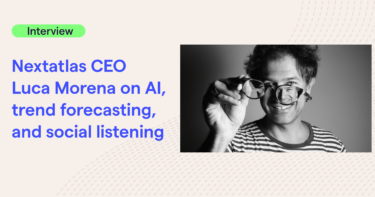
Interview with Nextatlas CEO Luca Morena
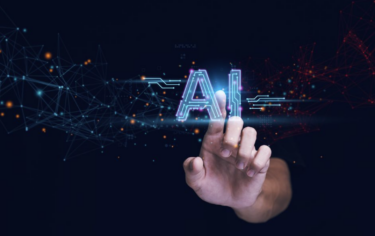
An introduction to gen AI for businesses. From RAG to LLMs — get the lowdown.

Exploring the Future of AI in Marketing: Integrating Insights into Business Systems for Enhanced Decision-Making.
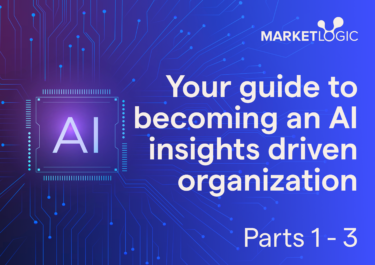
To succeed in today's dynamic consumer landscape, your organization must be able to react faster…
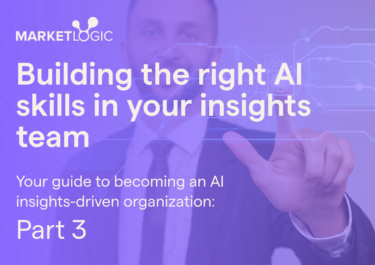
How does this guide help you? In part 3 of our guide, we’ll delve into…
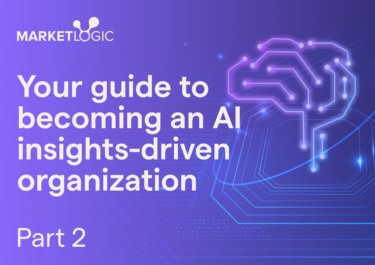
Learn the AI insights-powered enterprise systems architecture and processes.

Transform your organization with insights. Download this guide to find out how.